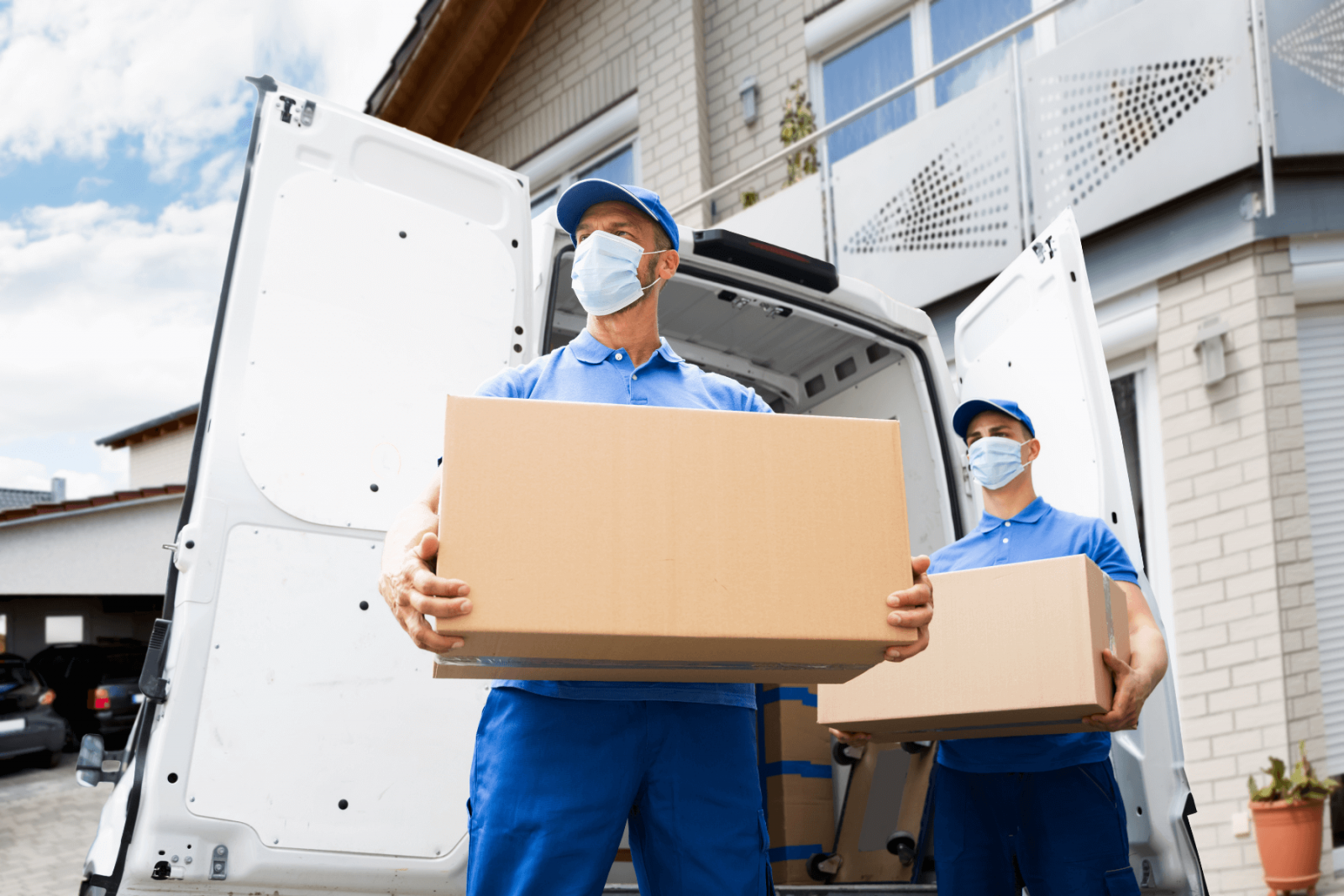
Ultimate Home Maintenance Checklist: 8 Tips For Homeowners
Stay on top of home maintenance with this easy checklist to prevent costly repairs, boost efficiency, and keep
 Written by:
Written by:

The Spacer Technologies content team is a dedicated group of writers and experts with a deep-rooted passion for the sharing economy. Our team is committed to creating informative, engaging, and valuable content across our various platforms. With a keen eye for detail and a talent for simplifying complex topics, we strive to empower our audience with knowledge and insights about the benefits of shared spaces.
 Edited by:
Edited by:

The Spacer Technologies content team is a dedicated group of writers and experts with a deep-rooted passion for the sharing economy. Our team is committed to creating informative, engaging, and valuable content across our various platforms. With a keen eye for detail and a talent for simplifying complex topics, we strive to empower our audience with knowledge and insights about the benefits of shared spaces.
Reading time : 30 mins

We all know the basics of moving. The packing tips, the best ways to organise our belongings, how to make moving day easier.
But when you’re in the middle of a big move, especially an interstate move, there are bound to be some surprises along the way. Things like hidden costs, finding the best removalist company, and how in the world to get settled into a completely new state. These are all things no one tells you when you move interstate.
In this guide, we’re going to talk about all of those hidden hurdles of moving interstate so that you can best be prepared during your move. If you’ve had any nervousness about moving interstate, don’t worry. We’re going to help you face this move head-on so that you can start your new life on the right foot.
There’s a lot to cover, so let’s get right into it!
Here’s a quick breakdown of the things we’re going to cover, here:
These things nobody tells you (from here on out, we’ll call them TNTYs) can be frustrating when you have to deal with them during your move interstate. So, talking about them now and planning for them ahead of time can save you a lot of stress!

There’s no getting around it – moving is expensive. While there are some things you can do to save money (asking friends and family for moving boxes, for instance), an interstate move will inevitably be more expensive than a local one.
Here are some of the hidden costs that you might face on your interstate move:
We listed this cost first because it’s the one that many people don’t expect. But with a long complicated move ahead of you, you definitely want to purchase moving insurance. This is going to save you money in the long term because, unfortunately, it’s pretty likely that some of your items may get damaged.
Depending on how many belongings you’ll be moving, and how far you’re traveling, moving insurance could range between $200 and $1000. Sometimes, the insurance is included in your removalist’s price, so it’s important to ask about coverage.
Alright, this one’s not so hidden – you probably expected that this would be your biggest expense. But, hiring people to come in and do the heavy lifting will take so much stress out of your move. Especially for interstate moves, it’s often worth the price.
There are different ways that you can go about hiring a removalist. Some companies will do absolutely everything for you, from the packing, to the transport to the unpacking when you arrive. As you can probably guess, this will be the most expensive.
Another option is to do self pack removals, in which you do the packing, and the removalist deals only with the transport. The way this often works is that the company will bring a storage container to your home, you’ll fill it with your items, they’ll take it to your new location, and you’ll do the unloading. This may not be the easiest option, but for many families, it’s the one that makes the most sense. The price will be lower, and if you’re healthy and strong (or you’ve got friends who are), the loading and unloading is worth the savings.
One final way to get your belongings to your new home is through backloading. With backloading, you’ll be sharing space with storage containers or large trucks that are going to your destination anyway. It’s like hitching a ride for your belongings. This is likely going to be the cheapest option you find, but there are some drawbacks. You might have to organise your move around the company’s schedule. Plus, it can sometimes be tricky to fit all of your belongings into one trip.
Overall, a big portion of your moving costs will go to whichever service you choose. It’s hard to give an estimate, as it’s going to depend on how far you’re moving and how many items you’ll be transporting. But the general estimate that removalists offer is somewhere between $2,000 and $6,000 for an interstate move.
You can learn more about finding the right removalist company by checking out our article on the best moving companies in Australia. And, we’ll talk a bit more about how to create a good relationship with your removalist later on in this guide.
Oh, and one last thing about removalists – you might consider budgeting a tip for them. For most companies, a monetary tip is not expected but will be appreciated if you think their service went above and beyond. Even buying them a round of beers or some other gesture will let them know how much you appreciate them making the move go smoothly.
If we lived in a perfect world, you would be able to hand over the keys to your old place in the morning and move all of your belongings into the new place that same afternoon. But that’s often not how things work out in real life. Sometimes there’s a gap between when you have to move out and when you can start moving in. Staying at an Airbnb or hotel is an easy solution for you and your family, but what are you going to do with your belongings?
Luckily, Spacer offers plenty of cheap storage options all over Australia. Whether you’re moving to Sydney, Melbourne, Brisbane, Canberra, Perth, Darwin, or anywhere else around Australia, you’ll find plenty of places to store your items.
Even if you don’t have a gap, it’s a great idea to keep a storage unit during your transition. After all, there will inevitably be items that don’t quite fit in your new place but that you don’t want to let go of. And, there might be items that you want to sell but don’t want to keep at home while you’re waiting for a buyer.
When it comes to booking a hotel, make sure to book as early as possible to get the best price. You’ll also want to call the hotel to confirm the day before you move. As rare as it is to have a booking lost, the law of the universe is that moving day will be the one time something like that happens.
In the last few weeks before your big move, you’ll notice that you’ll be relying more on take-out and easy meals so that you don’t have to keep cleaning and repacking your kitchen supplies. It’s a good idea to budget for this so that you’re not stressing about it as a hidden cost.
Whether you bring in a professional to clean your place, or you take on that work yourself, there will be some out-of-pocket cost.
In general, an end-of-lease cleaning will cost somewhere between $25 and $35 per hour. For a three bedroom house, then, you’re looking at a total cost of about $150 to $350. This may seem a bit high, but most bond cleaning companies will guarantee a return of your bond.
On the other hand, if you’re going to do the cleaning yourself, it’s a good idea to buy new supplies that you’ll then pack up and take with you. Just keep in mind that doing the cleaning yourself might become a cost in itself if you don’t clean well enough to get your whole bond back. You can learn more about how to do an excellent cleaning job yourself by reading our article on end of lease cleaning.
If you’re moving interstate, chances are, you’re going to have to pay for the driving costs or flight. This could also include overnight accommodations if you’re making the trip over a time period of more than one day.
If you have pets, you’ll also need to factor in the costs of transporting them.
When you arrive at your new home, one of the first things you’re going to want to do is take a hot shower – and maybe connect to the internet. So, you’ll want to make sure your utilities are all set up when you arrive.
One hidden cost of moving, though, is getting all of your utilities in order. In fact, for some utilities, you might end up paying a disconnection fee as well as a connection fee at the new place. Usually this is under $100, but it could be more since you’re moving interstate. It may also be upwards of $100 if you’re planning on switching your utility company.
Make sure you give your utilities providers a call at least a week before moving to get an idea of what the costs will be.
Moving is a wonderful opportunity to switch up your home decor and go for a whole new look. You might also notice that, with the different layout, you may need to buy different floor rugs, window coverings, or wall hangings.
And even if you don’t want to change a thing about your interior design, there may be a few other things that you’ll need to buy to make your home complete. At the very least, there will be the cost of restocking your fridge and making sure the bathrooms have enough toilet tissue. It’s also a good idea to buy a good supply of lightbulbs and cleaning supplies.

There are a few things that you’ll need to handle to make your transition as seamless as possible. Here are a few of the details you’ll need to iron out in advance of your interstate move:

There’s a lot going on during an interstate move, and it seems some things just want to get lost in the chaos. Keep these things in mind to save yourself from a pretty frustrating moving day:

Ever heard horror stories of the removalist simply not showing up? Or dropping an expensive piece of furniture? Or being rude and unpleasant during the entire trip?
Unfortunately, it can be hard to know what you’re going to get the day that you move house. Even if you did your research to find the best reviewed removalist, there are days that a company could be short-staffed or overworked. Here are some things that no one tells you about troubleshooting any issues with a removalist:
Unfortunately, it’s possible to have a bad experience with your removalist. And when it comes to moving interstate, it’s one of those things that no one tells you how to deal with. But, with some preventative steps like simply being friendly and offering refreshments, you can avoid most problems during the move. And if those don’t work, you’ve also got some steps to take to make things right.

You can probably guess that moving day is going to be a long, stressful day. It’s just how it is. But there are some things that nobody tells you about moving interstate that could help the day go much smoother. Here are some of the woes and triumphs of moving day to get you through.
There are a few words of advice that everyone picks up after they’ve gone through an interstate move. Here are a few of the best tips we’ve found for the interstate moving day that will help you anticipate and minimise the woes:
Even if you hit a few road bumps during your move interstate, make sure that you point out the triumphs too! If you get on the road on time, for instance, acknowledge that! If traffic is smoother than you expected, thank your lucky stars! And, if you’ve got young kids who managed to not cry on the plane, jump for joy! Pointing out these simple triumphs of moving day will keep you energised and ready for any road bumps.

You made it! You’re in your new home! You’re starting your new life! And, you may be thinking, well, what now? Here are a few things that nobody tells you that you should definitely do within the first week of moving interstate:
Find your new family doctor, dentist, and vet. You don’t want to wait until there’s an emergency to get to know your family’s new health providers. Within the first week, you’ll at least want to start making appointments for any physical exams for the human and furry members of the family. If you don’t have a local doctor nearby, you can book a telehealth consultation or order your prescriptions online.
One of the things that surprises many people when they move to a new state is how difficult it can be to transition socially. Especially if you’ve been living in one state for many years, it can be a shock even to move one state away from the place you’ve called home for so long.
Here are some things nobody tells you about navigating the social transition of an interstate move:
We’ve talked about all of the things that no one tells you when you move interstate. And now it’s time to put all of that knowledge into an easy-to-use checklist! Print this out, personalise it, keep it with you, and start planning your interstate move!
* Remember to keep a good attitude and highlight the things that went well to keep your and everyone’s spirits up!
Download the checklist here.
You’re just about ready to pack up for your big interstate move! In this guide, we talked about all of the things no one tells you about moving interstate. But of course, you’ll inevitably find unique surprises when it comes to your own journey!
Share your tips, tricks, woes and triumphs with us! We at the Spacer team love to hear about those brave souls who make the decision to move to another state!
The Spacer Technologies content team is a dedicated group of writers and experts with a deep-rooted passion for the sharing economy. Our team is committed to creating informative, engaging, and valuable content across our various platforms. With a keen eye for detail and a talent for simplifying complex topics, we strive to empower our audience with knowledge and insights about the benefits of shared spaces.
The Spacer Technologies content team is a dedicated group of writers and experts with a deep-rooted passion for the sharing economy. Our team is committed to creating informative, engaging, and valuable content across our various platforms. With a keen eye for detail and a talent for simplifying complex topics, we strive to empower our audience with knowledge and insights about the benefits of shared spaces.

Stay on top of home maintenance with this easy checklist to prevent costly repairs, boost efficiency, and keep

Being financially independent means having enough income, savings, or investments to live comfortably for the rest of your

From sorting your things to finding ways to reuse and recycle clutter, we’ve got simple and practical tips
This will close in 0 seconds
This will close in 0 seconds